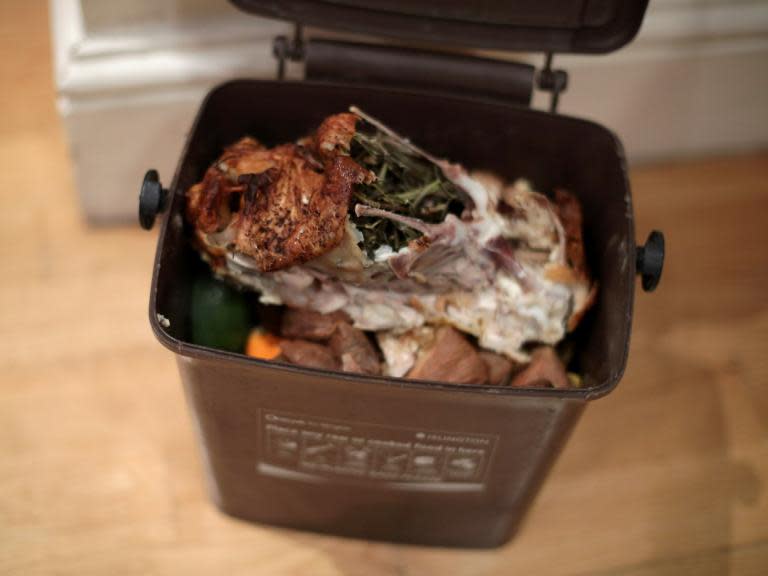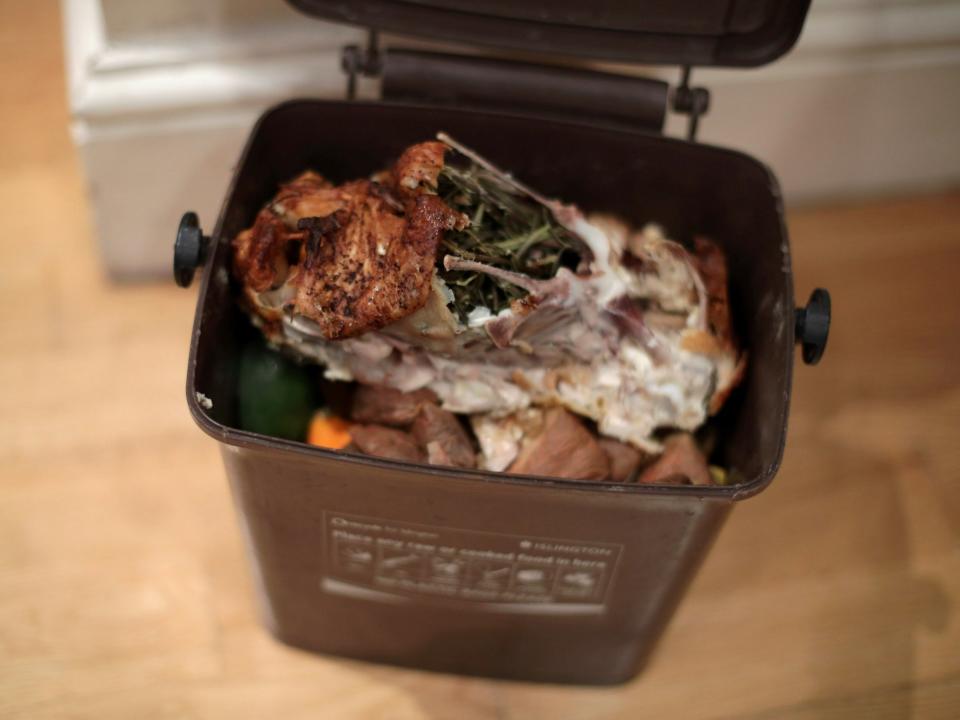Nestle, Tesco, Sainsbury’s and Waitrose pledge to help halve food waste by 2030
Major British supermarkets will pledge to help halve food waste by 2030, the government has said.
Representatives from Tesco, Sainsbury’s and Waitrose are expected to adopt a series of measures committing them to reducing food waste, though they are expected to set their own targets.
Controversial food giant Nestle, which has previously been identified as one of the world’s worst plastic polluters and has been accused by officials in California of bottling water it has no legal right to, will also sign the pledge.
But the firms will be allowed to set their own targets for reducing their portion of food wasted across the country. The UK wastes more than 10.2m tonnes of food each year, with the majority thrown away by households.
A million tonnes are wasted annually by the hospitality sector, 260,000 by retailers and 1.8m by food manufacturers, government figures showed.
“Every year, millions of tonnes of good, nutritious food is thrown away,” said Michael Gove, the environment secretary.
“This is an environmental, economic and moral scandal. I urge businesses to join me in signing the pledge to deliver real change to stop good food going to waste.”
Ben Elliot, the government’s food waste tsar, is expected to say at a launch event on Monday meeting: “Businesses throw away food worth an estimated £5bn, and £15bn is wasted from our homes. The emissions this creates is the equivalent of every third car on the road. We simply must put an end to this.”
The government is also hoping that attendees will adopt principles set out by the “food waste reduction roadmap”, which is aimed at helping companies measure and report on efforts to cut back waste.
The roadmap aims to ensure the UK meets the UN’s sustainable development goal of having halved per capita food waste by 2030.
Tesco, Aldi, Lidl, Asda, Sainsbury’s and Morrisons are among the companies who have already signed up to the scheme’s principles.
In 2017 it was revealed that the government had missed its target to reduce food waste.
A year later it launched another £15m project to combat the issue.
The government now plans to consult on mandatory annual reporting of food surplus and waste and may establish legal powers, introducing targets for waste prevention.
Additional reporting by PA


